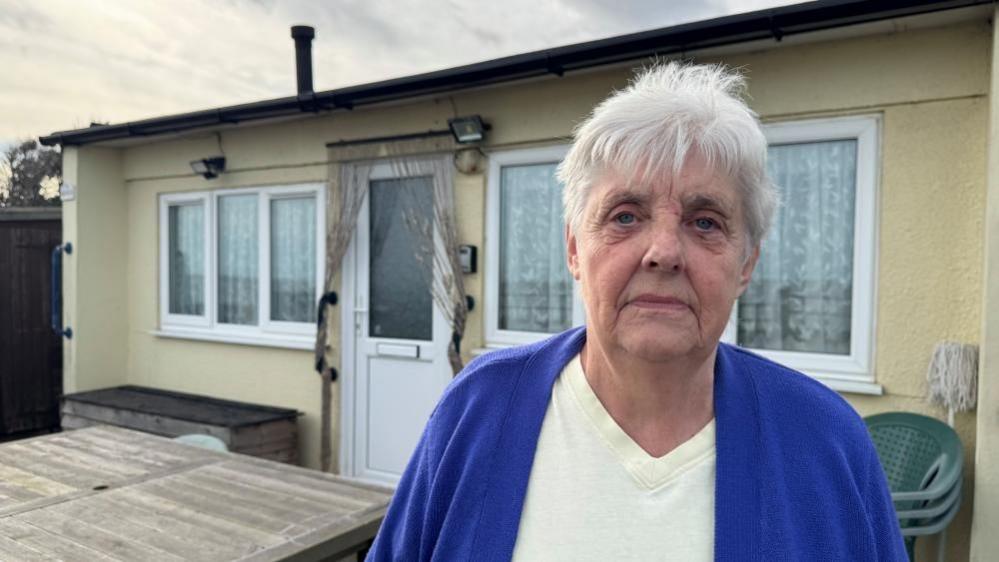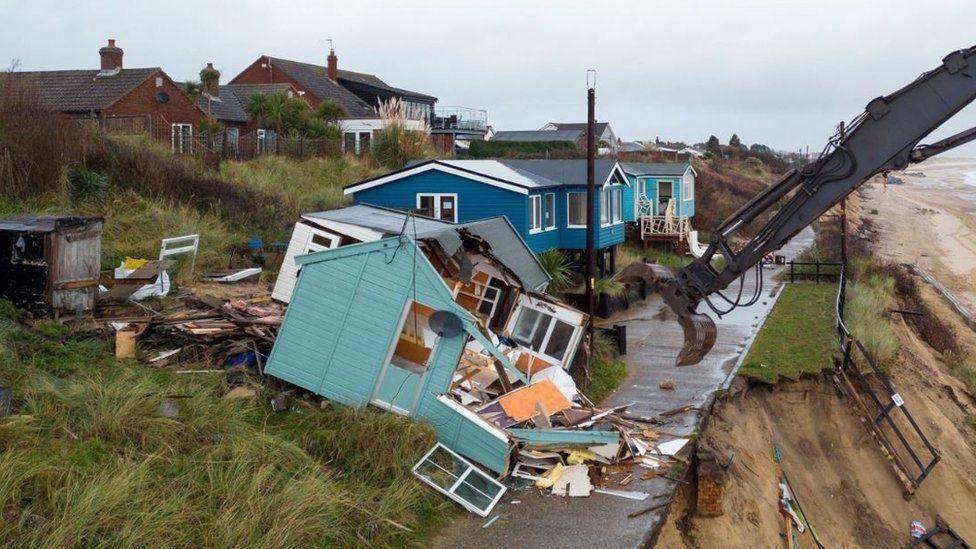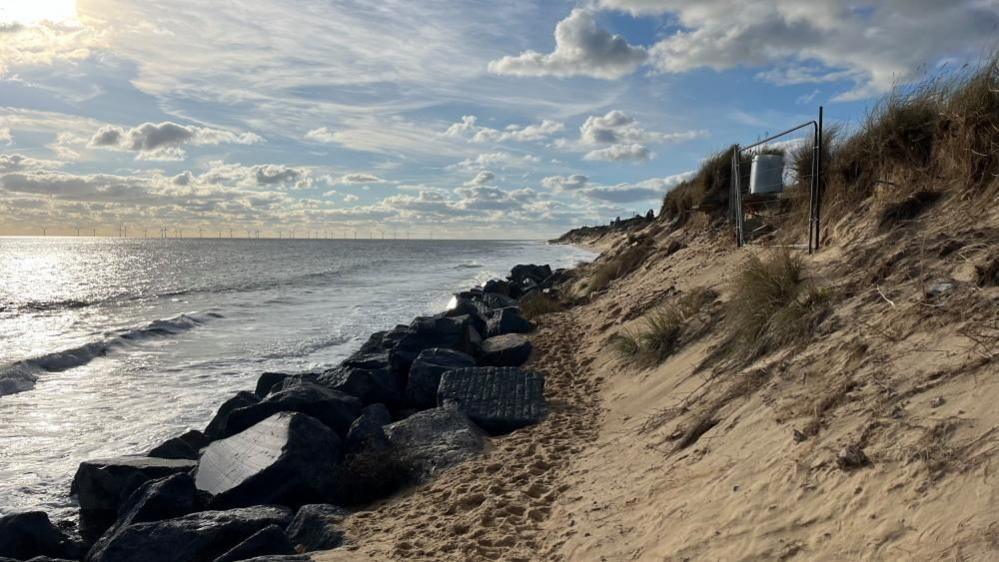Meeting told some coastal homes are 'unsustainable'

Great Yarmouth Borough Council leader Carl Smith said there had been "a lot of misinformation" and it was important residents heard directly from experts and the council
- Published
A coastal engineer has told residents in a village facing "unstoppable" coastal erosion that "some homes where they are at the moment are unsustainable".
About 200 people attended a meeting on Monday at Hemsby Village Hall, near Great Yarmouth, Norfolk, to hear what, if anything, could be done to protect their homes from the sea.
Hemsby has lost more than 25 homes since 2013 as successive storms have eroded the sandy cliffs along a road called The Marrams.
Great Yarmouth Borough Council's coastal manager, Giles Bloomfield, explained how a 25m (82ft) deep channel in the sea bed was moving closer to the shore and was causing tidal flows, lowering beach levels year-on-year and eroding cliffs.
Mr Bloomfield told the meeting the erosion was unstoppable.
"The difficulty I have is I can't tell you when that next big storm is going to come, so I have to tell you [that] you have to seriously contemplate your next steps. And I can't give you any more warning than that," he said.

Fisherman Paul Lines, on the right, disputes evidence provided by coastal manager Giles Bloomfield about sand shifting in tidal flows
Paul Lines, a fisherman who has lived in the village for 25 years, said he knew the sea off Hemsby "like the back of my hand".
He alleged that sand pumped to Sea Palling and Bacton to protect the beaches and the gas terminals had caused a sand bar off Winterton, which in turn had impacted tidal flows off Hemsby.
But Mr Bloomfield refuted the view, saying: "The beach [in order] to be stable has to move inland and it is going to come in conflict with the homes... and we can't stop that."
He said that any coastal defences would have to be moved regularly, costing many millions of pounds, and that "you'll still lose your home; you're delaying the inevitable".
Joanne Bowling, 37, lives on Fakes Road with her husband and three children, in a house inherited from her grandfather.
She asked the meeting: "If our house goes, where will me and my kids go? There's no way we can afford a house. Will we be made homeless?"
The council advised residents to talk to the council before their situation becomes urgent.

Jason Lomasz was told he could be personally responsible if concrete defences, owned by his family and other residents, moved and caused injury or death
Jason Lomasz, whose family own holiday cottages in the Newport area of Great Yarmouth, was told residents who put concrete blocks on the beach could become liable in the event of injury or death if they collapsed.
The council's chief executive, Sheila Oxtoby, said the authority would not remove defences but "if they are at risk of tipping over and killing a child, we will take action".
Peter Riches, managing agent for The Crown Estate - which owns all areas of the coastline between the high and low water marks, said: "If anyone wants to put assets on the beach, they have to work with The Crown Estate.
"It isn't a free-for-all. [We] expect that person to take responsibility."
Another member of the public shouted: "Shut the beach to the public and save the homes."
Mr Riches replied: "Is the beach not your biggest asset?"
That triggered many comments including one woman, called Jackie, who said: "We are more worried about houses that we've worked hard for, that we can't afford to lose.
"Why cant we have rocks to protect them? If we can't walk from Hemsby to Scratby, so what?"
Mr Bloomfield replied: "If you're putting a hard point [defence] in, the erosion will happen either side.
"If you put in a hard point, you're saying "I'm alright Jack!"
Get in touch
Do you have a story suggestion for Norfolk?
Follow Norfolk news on BBC Sounds, Facebook, external, Instagram, external and X, external.
Related stories
- Published30 October

- Published6 October

- Published16 July
